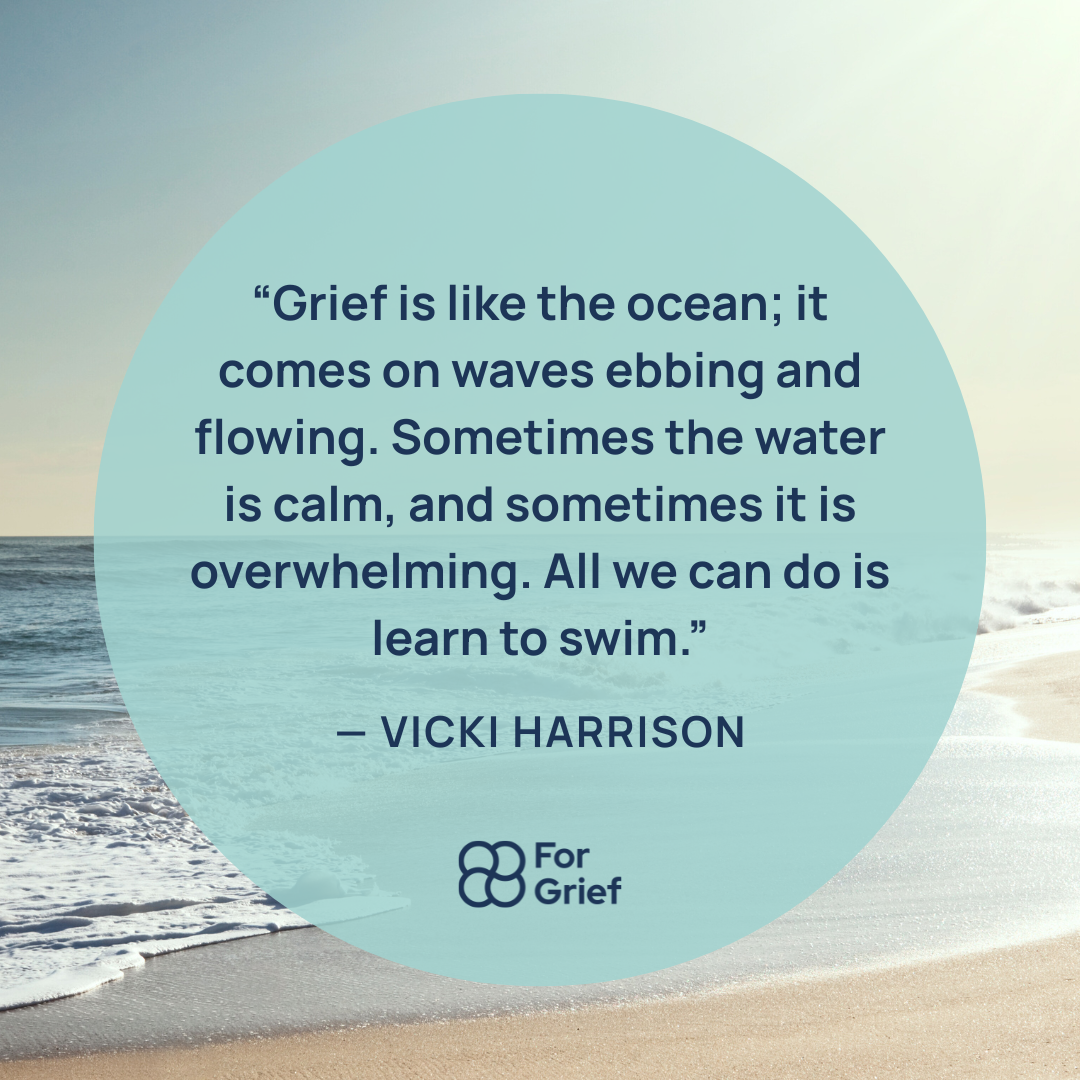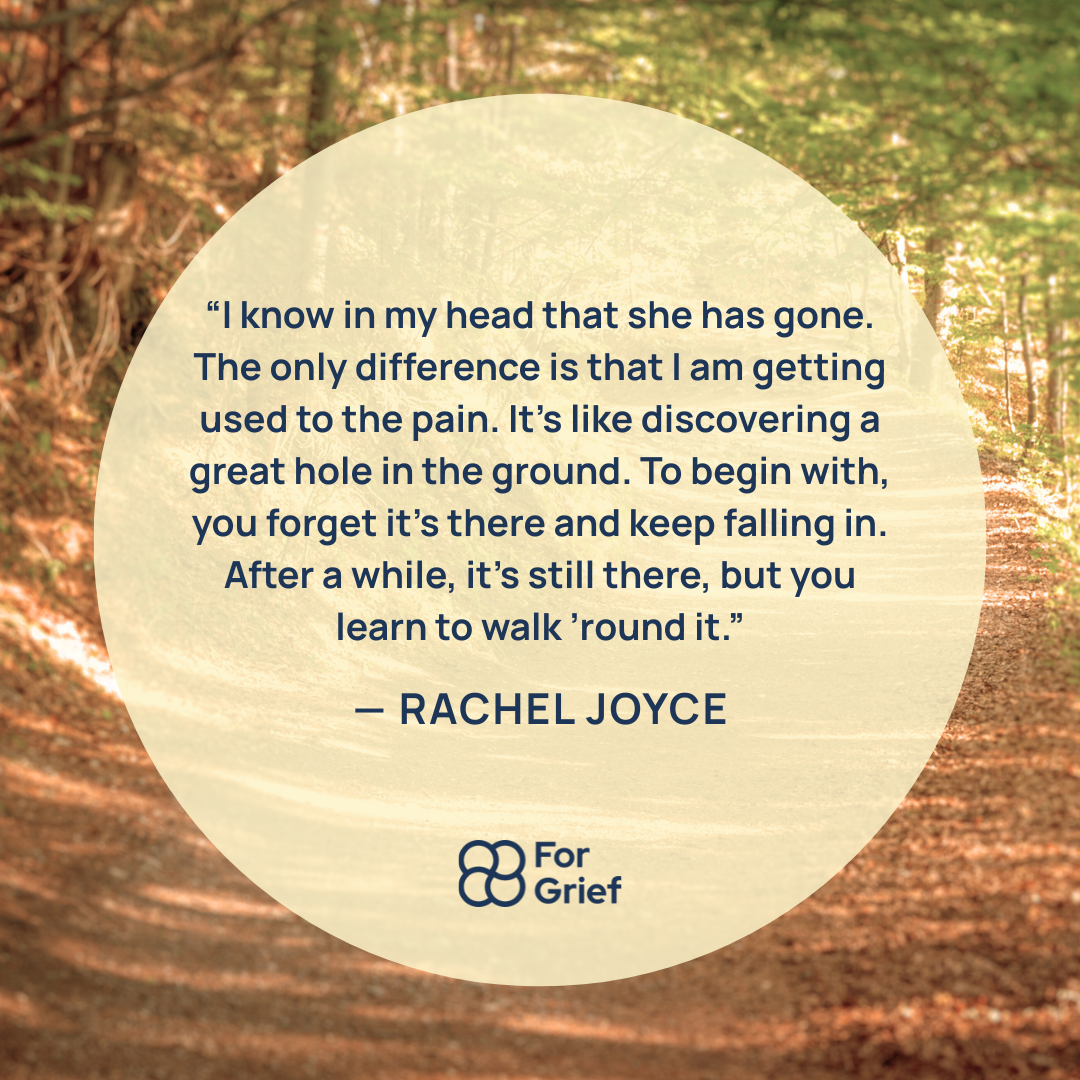Why Grief Has No Timeline
In the midst of grief, it’s easy to feel like it will last forever — like you’re walking on an endless path with healing and acceptance appearing only as mirages on the horizon. And because grief is so disruptive and uncomfortable, we find ourselves wondering, “How long will this last?”
The bad news: the idea of a grief timeline is largely a myth. It certainly doesn’t follow a linear path or even a predictable one. The good news: while grief may never fully dissipate, it generally becomes less intense over time, with occasional difficult days here and there. The feelings of grief will soften over time, but part of the reason why grief has no timeline is because love — and therefore grief — never truly ends.
Still, despite this understanding, there are many reasons the myth of the grief timeline persists.
Why do we feel like grief should follow a timeline?
When a loss occurs, people in our lives are often eager to provide support: making meals, running errands, checking in, etc. As time goes on, however, those offers tend to taper off, sometimes sooner than we feel ready for.
Grief, whether our own or someone else’s, is uncomfortable — a byproduct of our society’s aversion to talking about death and grief. When we aren’t the ones grieving, we’re even more eager to move on and back to the safety of what’s familiar.
Seeing other people go about their lives while you feel like your world stopped turning can be disorienting. You may even have people telling you things like, “it’s time to move on with your life.” Please know it’s okay for it to take a while for you to adjust to your new normal. There is no shame in the pace or path of your grief.
Grief expert David Kessler says people often put time constraints on grief, expecting it to dissipate too quickly. There is a persistent idea that most of our grief should be behind us within a year following a loss. However, when Kessler teaches about grief, early grief is the first two years.
Like a snowflake, each experience with grief is unique. Even the same person can experience grief differently after different losses.
Understanding the five stages of grief
The way grief has historically been discussed may contribute to the idea that it should follow a timeline or a prescribed trajectory. In 1969, Elizabeth Kübler-Ross introduced the concept of the five stages of grief: denial, anger, bargaining, depression and acceptance. Despite many clarifications and reminders throughout her career, these five stages of grief have become deeply embedded into our thoughts about grief.
Kübler-Ross developed the five stages of grief after observing how patients with terminal illnesses came to terms with their own mortality, not people processing the loss of a loved one, as is often assumed. In a collaboration with Kessler in their book On Grief and Grieving: Finding the Meaning in Grief Through the Five Stages of Loss, they are upfront in stating that grief is not linear.
Kessler has been cited saying, “They don’t prescribe, they describe.” In other words, the five stages of grief are not steps to complete in their journey, they simply reflect common emotions many people experience during grief. A person might feel each stage of grief but in a different order; another may only experience one or two stages, while some may feel none at all. The stages can repeat or overlap.
Our brains like order to make sense of things. With a feeling as complex as grief, our brains struggle. Having something like the stages of grief to categorize our feelings helps us make sense of them and feels less chaotic, which is likely why they have persisted.
“What is grief, if not love persevering?” — Vision, WandaVision
Ultimately, grief has no timeline because grief has no end. It’s been said grief is simply love with nowhere to go. When you love someone deeply, their absence in your life will likely always be felt. Even though their life has ended, your love for them lives on. Thus, you will always carry your grief with you — but it will get lighter with time. Actor Andrew Garfield speaks on this concept beautifully about his late mother.
Perhaps one of the best illustrations of this concept shows up in the children’s book Grief Is an Elephant by Teresa Ellis Smith. When grief first arrives, it is like an elephant — so big that there is hardly room for anything else. But over time, grief can become smaller and smaller — first a deer, then a fox, a mouse and finally a flickering firefly in the darkness leading us down a path of loving remembrance.
Allowing your grief to lighten over time does not you’ve forgotten or “moved on.” It means you’re processing your grief and learning how to carry your grief with you. Below, we share some quotes about the evolution of grief you may find comforting or encouraging on your own journey.
Comforting quotes about living with grief
“They say time heals all wounds, but that presumes the source of the grief is finite.” — Cassandra Clare
“We never lose our loved ones. They accompany us; they don’t disappear from our lives. We are merely in different rooms.” — Paulo Coelho
“Grief is like the ocean; it comes on waves ebbing and flowing. Sometimes the water is calm, and sometimes it is overwhelming. All we can do is learn to swim.” — Vicki Harrison
“You will lose someone you can’t live without, and your heart will be badly broken, and the bad news is that you never completely get over the loss of your beloved. But this is also the good news. They live forever in your broken heart that doesn’t seal back up. And you come through. It’s like having a broken leg that never heals perfectly — that still hurts when the weather gets cold, but you learn to dance with the limp.” — Anne Lamott
“And when great souls die, after a period peace blooms, slowly and always irregularly. Spaces fill with a kind of soothing electric vibration. Our senses, restored, never to be the same, whisper to us. They existed. We can be. Be and be better. For they existed.” — Maya Angelou
“The reality is that you will grieve forever. You will not ‘get over’ the loss of a loved one; you’ll learn to live with it. You will heal and you will rebuild yourself around the loss you have suffered. You will be whole again, but you will never be the same. Nor should you be the same nor would you want to.” — Elisabeth Kübler-Ross and David Kessler
“Grief changes shape, but it never ends.” — Keanu Reeves
“I know in my head that she has gone. The only difference is that I am getting used to the pain. It’s like discovering a great hole in the ground. To begin with, you forget it’s there and keep falling in. After a while, it’s still there, but you learn to walk ’round it.” — Rachel Joyce








